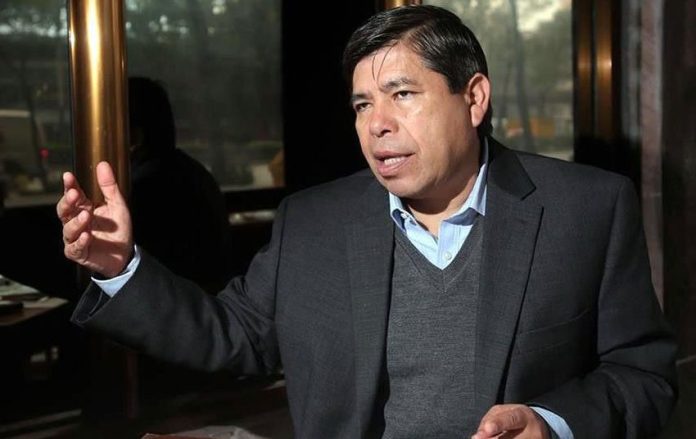Mexico’s immigration chief resigned today a week after the government reached an agreement with the United States to increase enforcement against undocumented migrants.
In a brief statement, the National Immigration Institute (INM) said that Tonatiuh Guillén López had presented his resignation to President López Obrador and thanked him for the opportunity to serve the country.
Guillén was sworn as INM commissioner on December 1, the same day that López Obrador took office.
A month earlier, Guillén vowed that Central American migrants would receive kinder attention during the López Obrador administration.
“We have to make the [immigration] institute much more protective, caring and humane,” he told the newspaper Reforma in an interview published on November 1.
Initially that was the case: in January the INM issued more than 10,000 humanitarian visas to migrants as part of a new government program that Guillén described as “super successful.”
“It’s really establishing a new paradigm in Mexico’s immigration policy that is based on Mexico’s laws and the country’s international commitments,” he said at the time, conceding that it wasn’t the “ideal scenario” for Donald Trump.
However, in more recent months, authorities started implementing stricter immigration policies amid increasing pressure from the United States to stop the flow of migrants from Central America.
The number of arrests and deportations increased and the INM stopped issuing humanitarian visas.
Human rights and migrant advocacy groups warned that the increasingly militarized approach to combating migrants’ transit through Mexico posed a threat to their rights, but the government agreed last Friday to implement even stricter enforcement as part of a deal to stave off tariffs threatened by the United States.
Among the commitments Mexico made were to deploy 6,000 National Guard troops to the southern border and to accept the return of a higher number of asylum-seekers as they await the outcome of their claims in the United States.
While Guillén hasn’t cited any reasons for his resignation, the government’s shift towards stricter migration enforcement appears the logical explanation.
“This really shows there’s a rift within the administration between the hard-liners, those who want to comply with Trump to avoid tariffs at all cost, and those who have qualms about militarized enforcement of immigration laws,” said security analyst Alejandro Hope.
Source: El Financiero (sp)
